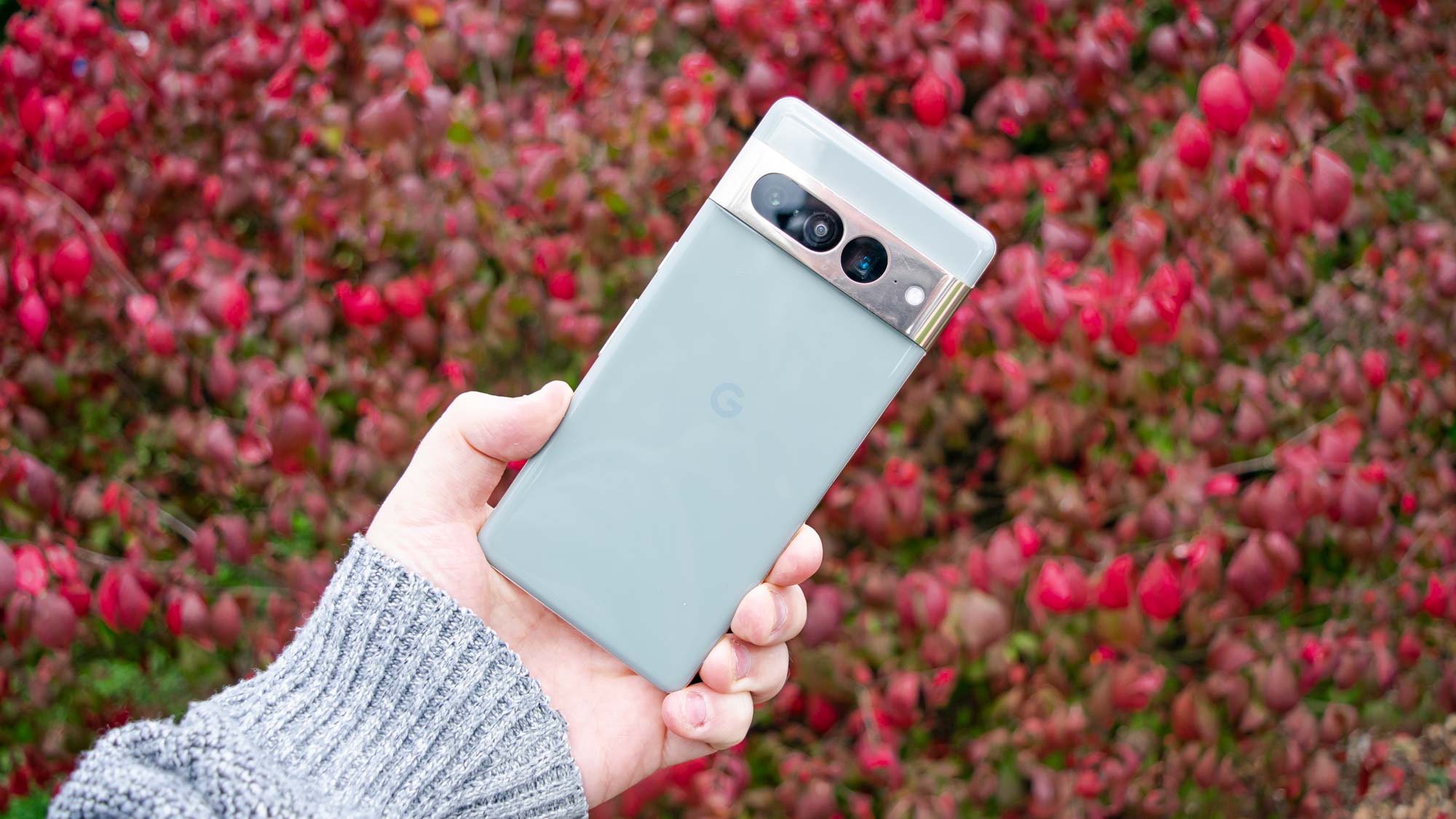Google Pixel 7a just tipped to be a huge leap forward — here's how
A mystery device seems have better cameras than the Pixel 7 and wireless charging

Here at Tom’s Guide our expert editors are committed to bringing you the best news, reviews and guides to help you stay informed and ahead of the curve!
You are now subscribed
Your newsletter sign-up was successful
Want to add more newsletters?

Daily (Mon-Sun)
Tom's Guide Daily
Sign up to get the latest updates on all of your favorite content! From cutting-edge tech news and the hottest streaming buzz to unbeatable deals on the best products and in-depth reviews, we’ve got you covered.

Weekly on Thursday
Tom's AI Guide
Be AI savvy with your weekly newsletter summing up all the biggest AI news you need to know. Plus, analysis from our AI editor and tips on how to use the latest AI tools!

Weekly on Friday
Tom's iGuide
Unlock the vast world of Apple news straight to your inbox. With coverage on everything from exciting product launches to essential software updates, this is your go-to source for the latest updates on all the best Apple content.

Weekly on Monday
Tom's Streaming Guide
Our weekly newsletter is expertly crafted to immerse you in the world of streaming. Stay updated on the latest releases and our top recommendations across your favorite streaming platforms.
Join the club
Get full access to premium articles, exclusive features and a growing list of member rewards.
After four generations of the Pixel a-series, we have a good handle on what Google’s mid-range offerings provide. There’s always been a more plasticky build, with advanced features stripped back. Sometimes, but not always, that’s accompanied by a slower chipset and weaker rear camera.
But for the Pixel 7a, Google may be planning something radically different, 9to5Google believes. The site suspects that the mystery device codenamed Lynx is not a Pixel 7 Ultra as previously believed, but the Pixel 7a.
If that’s correct, it promises a huge upgrade on what’s come before, and a product that could even eclipse the Pixel 7 Pro in one key respect: a superior rear camera.
The missing Lynx
Here’s 9to5Google’s thinking. Throughout the year, the site has been tracking five devices that will emerge between fall 2022 and mid-2023. Of these, two have already come out: Panther (the Pixel 7) and Cheetah (the Pixel 7 Pro), while the site is confident that two more — Tangor and Felix — are the Pixel Tablet and foldable Pixel Notepad or Pixel Fold.
That leaves one device: Lynx.
With only one device not earmarked, and with the other two offering vastly different form factors, the site reasons both that this is the Pixel 7a and that other leaks that didn’t appear on the two available Pixel 7s are destined for it instead.
That starts with a ceramic body, originally predicted by Digital Chat Station on Weibo in August. While this was pitched as a flagship at the time, 9to5Google reckons it’s actually Lynx as it has the same camera arrangement.
Get instant access to breaking news, the hottest reviews, great deals and helpful tips.
Speaking of the camera arrangement, this is where things get really interesting as the suggestion is that the Pixel 7a could actually better the Pixel 7 Pro in the photography stakes — on paper, at least.
Not only does Lynx seem to pack the same Samsung GN1 50MP sensor that debuted on the Pixel 6, but it comes with two additional sensors: the Sony IMX712 13MP lens for ultrawide and the Sony IMX787 64MP camera for telephoto. The latter of these should better the Samsung GM5 48MP telephoto lens found in the Pixel 7 Pro.
The front sensor is also new - unannounced IMX712, apparently 13MP.My theory is that Lynx is some sort of an internal device for Google to evaluate new camera sensors, however they might still surprise us. Either way we will probably find out soon enough.July 25, 2022
Finally, the developer Kuba Wojciechowski, seen above revealing the camera specs, has more recently highlighted Lynx’s support for wireless charging.
Now, Google has confirmed the usage of IMX712 sensors as well as the support for wireless charging (WLC) (1) pic.twitter.com/IgyHLkDudaOctober 16, 2022
If this is indeed the Pixel 7a, that’s another first for the a-line. But that’s a big if.
Too good to be true?
Added together, this would make the Pixel 7a a radically different product from all the Pixel a-phones that have come before. While there’s rightly some skepticism in the comments, 9to5Google has an excellent pedigree with its code dives, and will know that this seems a little farfetched on paper. In other words, the site would have to be very confident to publish at all.
That said, one way this could be mistaken is if it’s built on a misunderstanding. What if Lynx doesn’t reference the Pixel 7a, but is actually a Pixel 7 Fan Edition, a Pixel 7 mini, a Pixel 7 Ultra or a test board for a Pixel 8? To be clear, there’s no firm evidence that any of these theoretical products exist, but they could, and the feature set uncovered here would make more sense on them from a historical perspective.
But if that were the case we’d expect another codenamed product to be the Pixel 7a, and there doesn’t seem to be one. Also, remember that when Lynx was believed to be the Pixel 7 Ultra, it did seem odd that it had a lower resolution screen than the regular Pixel 7s.
Moreover, it’s not like Pixel a-series phones have been consistent in what they offer from the aforementioned historical perspective either. The Pixel 3a, 4a and 5a offered the same rear camera as the flagship models, but the Pixel 6a didn’t. The Pixel 3a, 4a and 5a all had weaker chips than their corresponding flagship but the Pixel 4a 5G, Pixel 5a and Pixel 6a shipped with the same SoC.
In other words, the Pixel a series has been evolving for years. Nothing is stopping it from evolving again. We’ll have to wait and see if it does so in 2023.
Freelance contributor Alan has been writing about tech for over a decade, covering phones, drones and everything in between. Previously Deputy Editor of tech site Alphr, his words are found all over the web and in the occasional magazine too. When not weighing up the pros and cons of the latest smartwatch, you'll probably find him tackling his ever-growing games backlog. He also handles all the Wordle coverage on Tom's Guide and has been playing the addictive NYT game for the last several years in an effort to keep his streak forever intact.
 Club Benefits
Club Benefits











